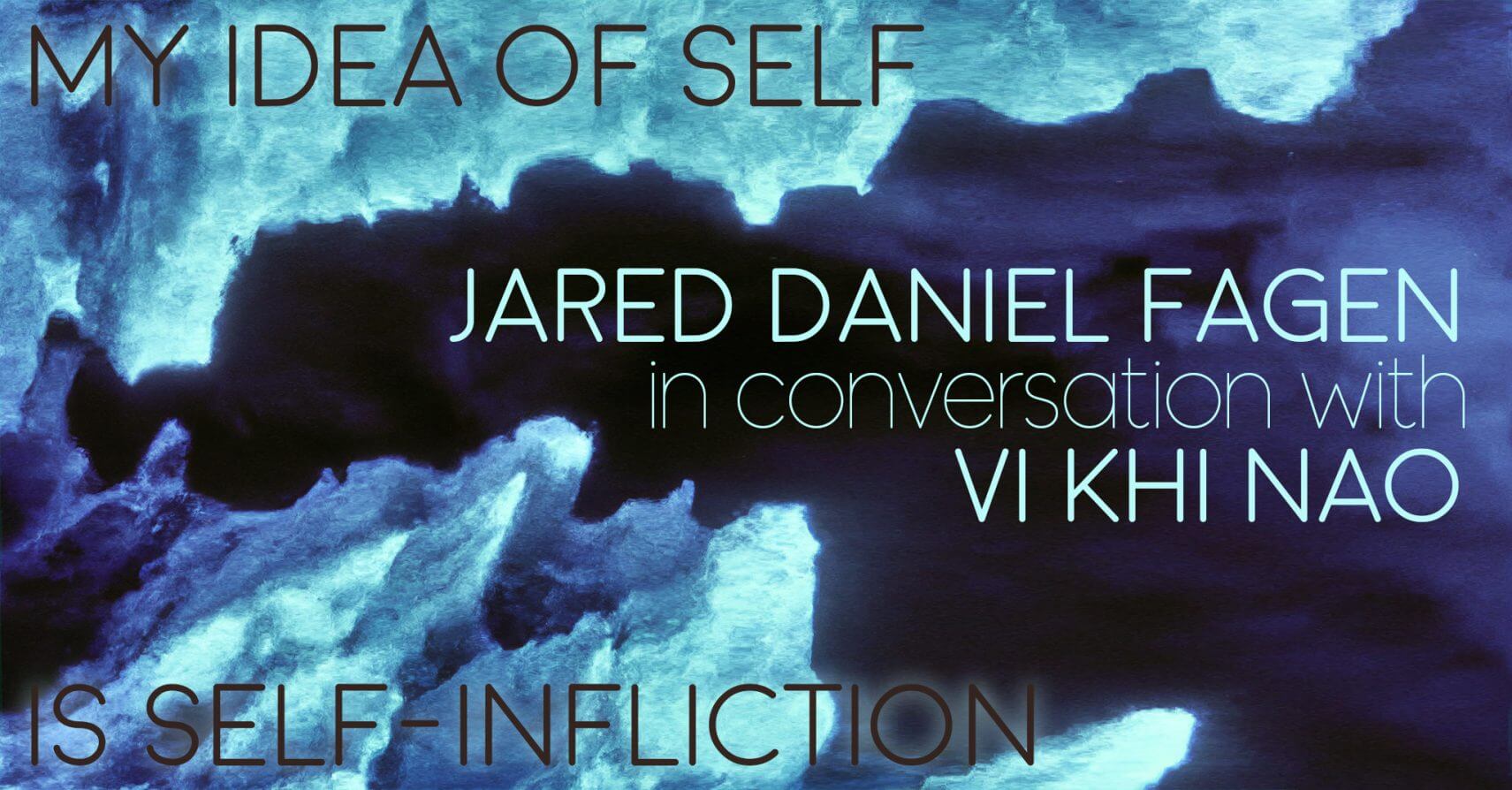
MY IDEA OF SELF IS SELF-INFLICTION: Jared Daniel Fagen in conversation with Vi Khi Nao
I don’t feel free, Vi. Never have. I know you don’t either. I don’t know anyone who does, or has. Maybe nothing is, nor should it be.
Vi Khi Nao is the author of seven poetry collections & of the short stories collection, A Brief Alphabet of Torture (winner of the 2016 FC2’s Ronald Sukenick Innovative Fiction Prize), the novel, Swimming with Dead Stars. Her poetry collection, The Old Philosopher, won the Nightboat Books Prize for Poetry in 2014. Her book, Suicide: the Autoimmune Disorder of the Psyche is out of 11:11 in Spring 2023. The Fall 2019 fellow at the Black Mountain Institute, her work includes poetry, fiction, film and cross-genre collaboration. She was the 2022 recipient of the Jim Duggins, PhD Outstanding Mid-Career Novelist Prize. | https://www.vikhinao.com | https://twitter.com/vikhinao | https://www.instagram.com/vikhinao/ | https://www.facebook.com/vikhinao

I don’t feel free, Vi. Never have. I know you don’t either. I don’t know anyone who does, or has. Maybe nothing is, nor should it be.
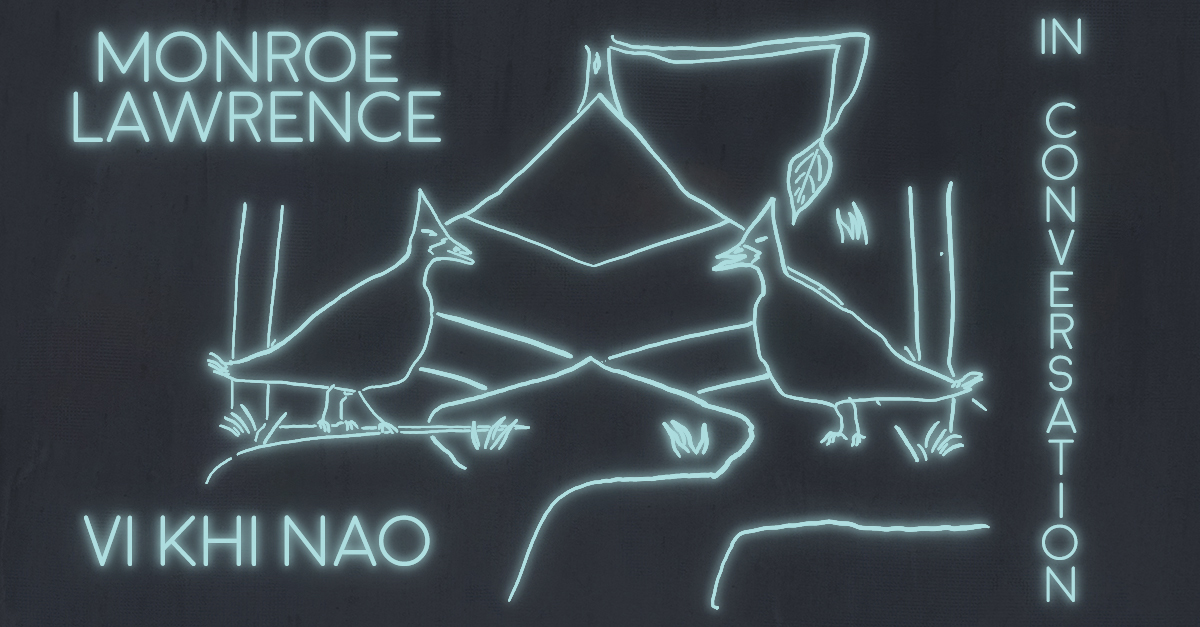
VI KHI NAO: Almond was mentioned quite a few times on page four of About to Be Young. Can you tell me about your relationship with this edible oval nutty thing? When I was in Spain, eating pistachio ice cream for lunch, dinner, and breakfast, the ice cream maker kept repeating “almond,” and “almond” over and over to imply the almond tree growing in the winter months a few hours from Granada. It reminded me of your poem that begins with “Oh God” and ends “crying almond, almond, almond into the night.” Will the poets in my…
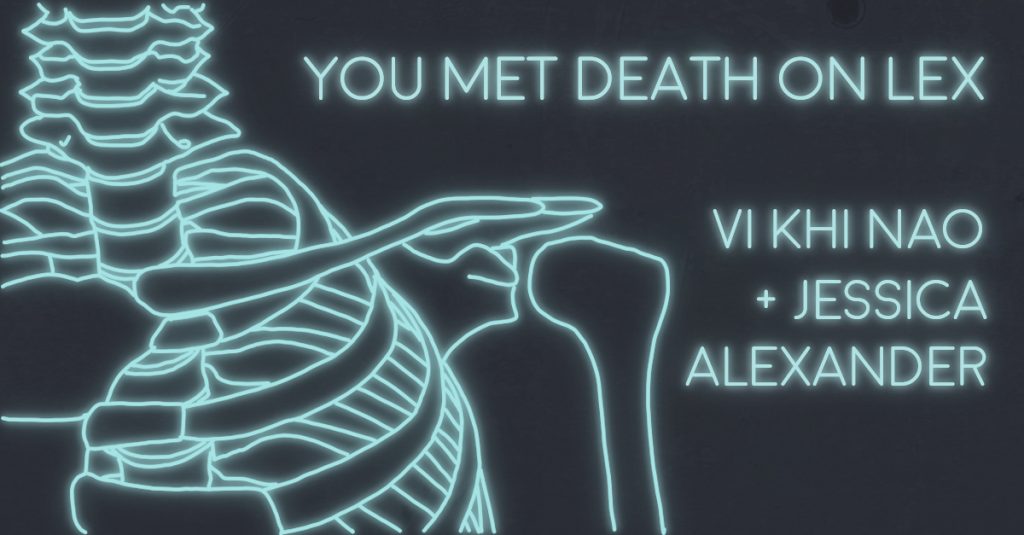
and asked her to meet you at a hotel in Brooklyn You would not meet her in Vegas where the sounds of your mother’s movements came through the walls between your rooms Meanwhile, in another state Death courted our brothers on Uber and Grinder As you removed one blind eye from the invisible pocket of your black bra You realized that your memory of your brother had an invisible purse With its zipper sewn on its side and its contents were pennies or wishes So when they hit the surface of your eye the world you knew rippled Back then…
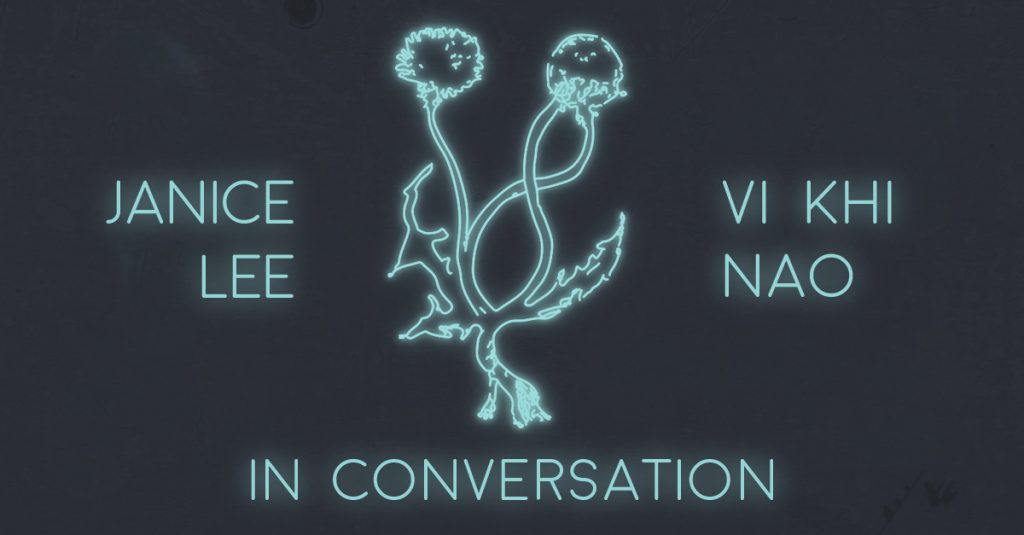
VI KHI NAO: I read the first half of your Imagine A Death during a flight into San Francisco. I am currently in Boulder—where I think the landscape ofthe high elevation may have altered my relationship with your work in the second half. Many of your sentences are long – like Bela Tarr long – and they require strong lung capacity to fully experience, inhale the depth and intensity of your gaze. Being near this mountain, I feel I could acclimate to your long, gorgeous, beautiful sentences that open one world into another world into another world. Has this long…
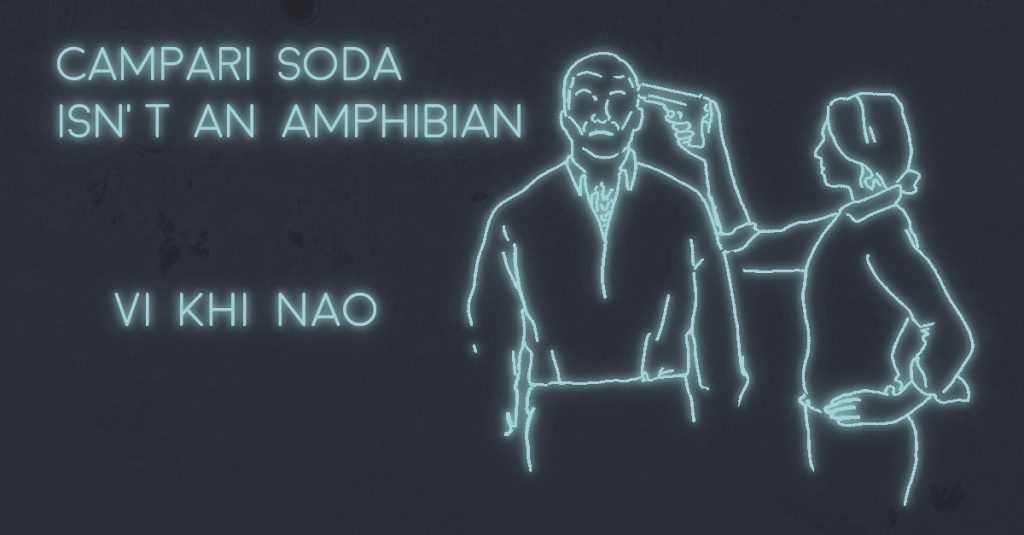
In real life, the girl on the toilet is named KAY. Another girl, Vada, walks in and silently holds a gun to Kay’s head. Without making any demands. She turns to Kay and automatically offers one key to her. Vada takes a look at the key and contemplates whether to kill her or not. Vada pulls the trigger and Kay drops to the ground. She turns to the bathroom door and realizes that there is a key already in the lock. Vada walks towards the bar after exiting the bathroom. And, turns to the bartender and says, “My sex drive…
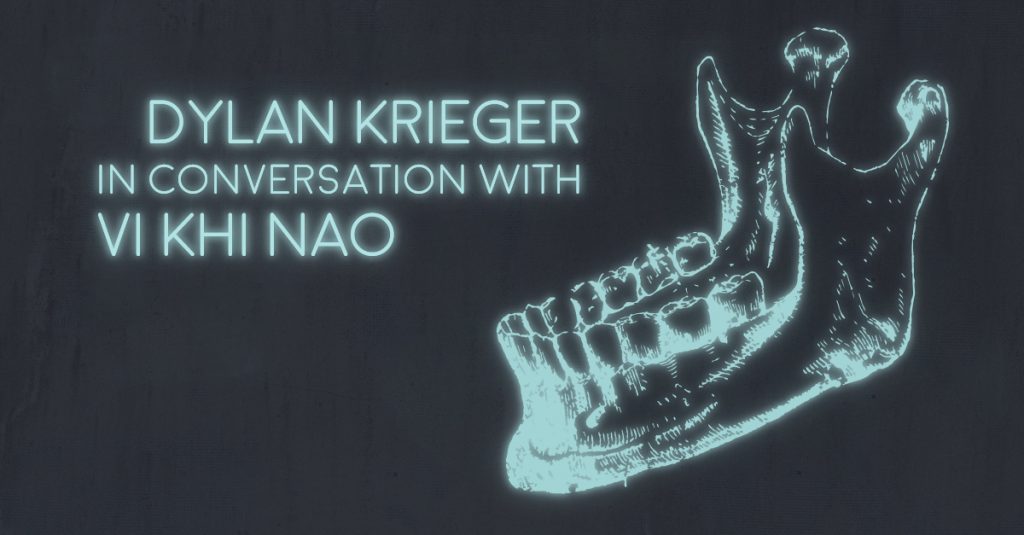
VI KHI NAO: Your bios over the years read like a poem: “Dylan Krieger is a transistor radio, a poet, a performer, a repository of high hopes from hell, a pile of false eyelashes growing algae in South Louisiana, an automatic meaning generator writing the apocalypse in real time, a divining rod of ungodly proportions.” Where and when in your life are you not a poet? DYLAN KRIEGER: Over the course of my life, poetry has slowly permeated more and more of my speech, my encounters, my rituals. There are fewer and fewer places where I am not a poet,…